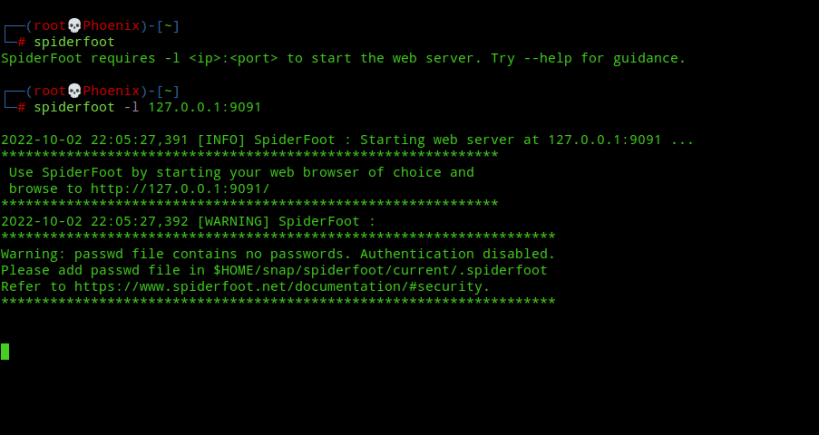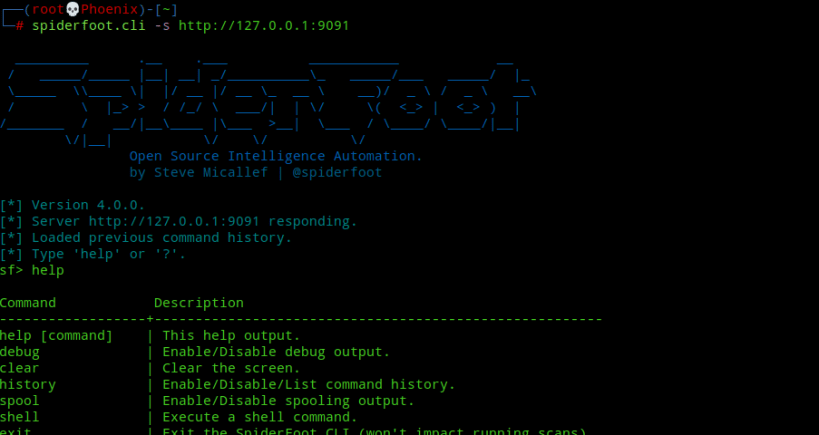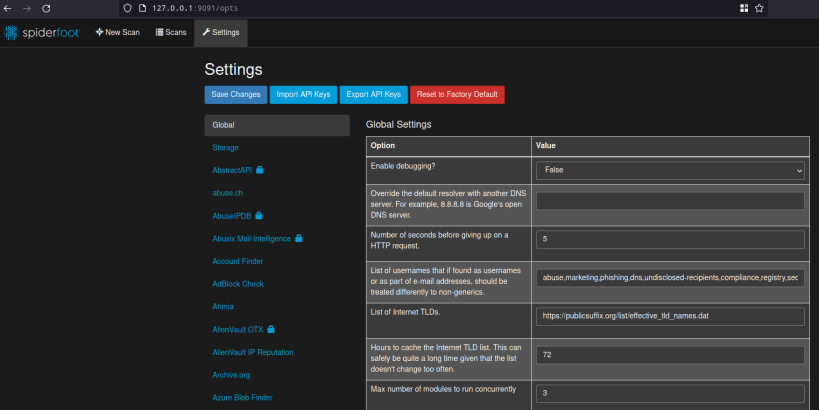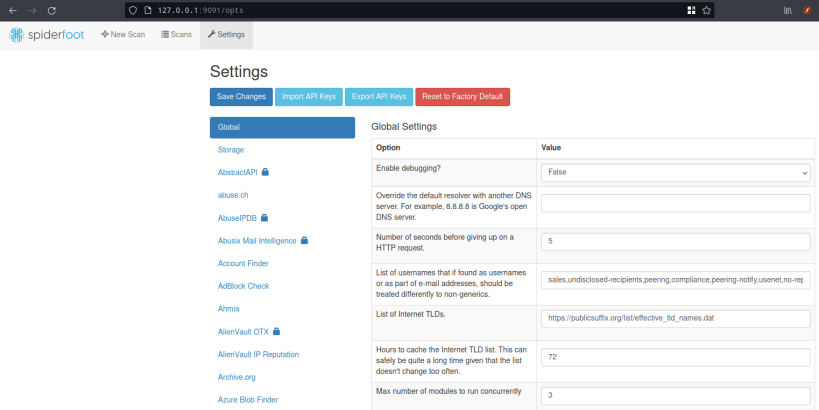





SpiderFoot is an open source intelligence (OSINT) automation tool. It integrates with just about every data source available and utilises a range of methods for data analysis, making that data easy to navigate.
SpiderFoot has an embedded web-server for providing a clean and intuitive web-based interface but can also be used completely via the command-line.
FEATURES
* Web based UI or CLI
* Over 200 modules (see below)
* Python 3.7+
* YAML-configurable correlation engine with 37 pre-defined rules
* CSV/JSON/GEXF export
* API key export/import
* SQLite back-end for custom querying
* Highly configurable
* Fully documented
* Visualisations
* TOR integration for dark web searching
* Dockerfile for Docker-based deployments
* Can call other tools like DNSTwist, Whatweb, Nmap and CMSeeK
Documentation:- https://www.spiderfoot.net/documentation
Asciinema videos:- https://asciinema.org/~spiderfoot
To use nmap in SpiderFoot, you've to manually connect two interfaces with the following commands:-
`sudo snap connect spiderfoot:nmap nmap:nmap`
`sudo snap connect nmap:network-control`
You are about to open
Do you wish to proceed?
Thank you for your report. Information you provided will help us investigate further.
There was an error while sending your report. Please try again later.
Snaps are applications packaged with all their dependencies to run on all popular Linux distributions from a single build. They update automatically and roll back gracefully.
Snaps are discoverable and installable from the Snap Store, an app store with an audience of millions.

If you’re running Ubuntu 16.04 LTS (Xenial Xerus) or later, including Ubuntu 18.04 LTS (Bionic Beaver) and Ubuntu 20.04 LTS (Focal Fossa), you don’t need to do anything. Snap is already installed and ready to go.
For versions of Ubuntu between 14.04 LTS (Trusty Tahr) and 15.10 (Wily Werewolf), as well as Ubuntu flavours that don’t include snap by default, snap can be installed from the Ubuntu Software Centre by searching for snapd.
Alternatively, snapd can be installed from the command line:
sudo apt update
sudo apt install snapd
Either log out and back in again, or restart your system, to ensure snap’s paths are updated correctly.
To install SpiderFoot, simply use the following command:
sudo snap install spiderfoot
Browse and find snaps from the convenience of your desktop using the snap store snap.

Interested to find out more about snaps? Want to publish your own application? Visit snapcraft.io now.